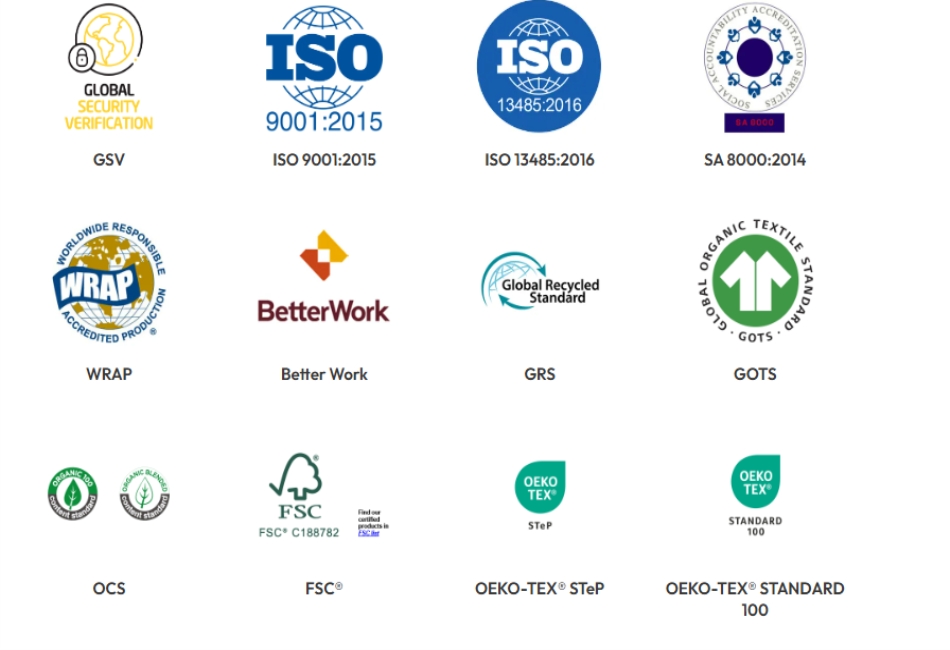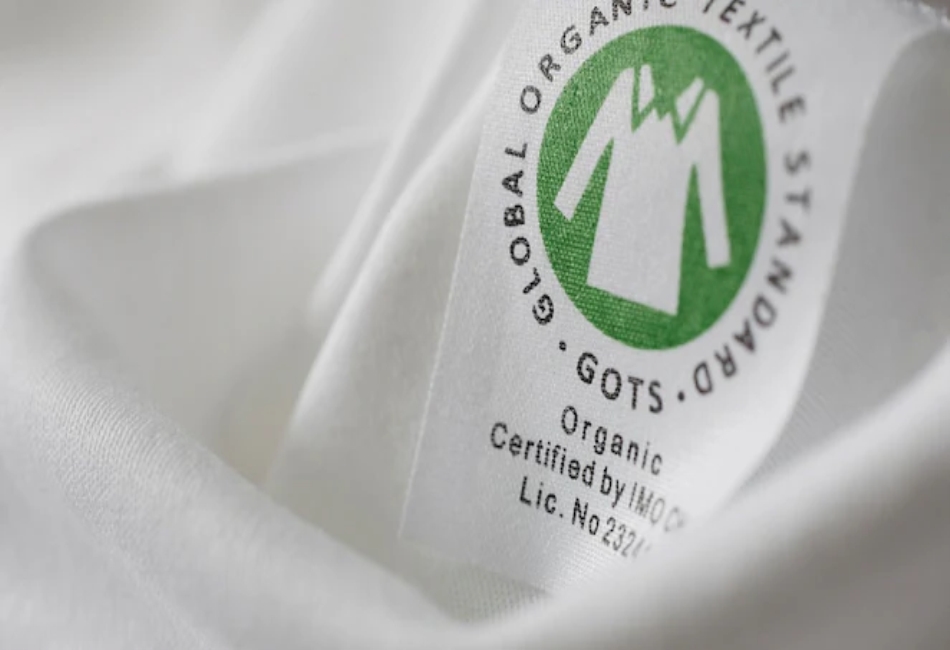The Role of Certifications in Global Apparel Sourcing
In global apparel sourcing, certifications help brands make sure their products meet important standards for safety, sustainability, and social responsibility. With supply chains becoming more complex, having the right certifications can protect your brand, build customer trust, and open doors to new markets. This writing explains what certifications are, why they matter, and how brands can use them wisely in today’s fashion industry.
In global apparel sourcing, certifications help brands make sure their products meet important standards for safety, sustainability, and social responsibility
What are Certifications in Apparel Sourcing?
Certifications in apparel sourcing are more than just labels, they are essential tools for quality assurance, risk management, and brand integrity. As the global market increasingly demands transparency, traceability, and accountability, these certifications serve as a bridge of trust between brands, suppliers, and end consumers.
Certifications can cover a wide range of criteria, but they are especially important in areas like material safety, ethical production, environmental impact, and traceability. For example, certifications such as OEKO-TEX® Standard 100 and Bluesign® focus on chemical safety and ensure that fabrics are free from harmful substances, making them safe for human use. These are particularly crucial for garments like underwear, babywear, or sportswear, where skin contact is constant.
For brands that emphasize sustainability, certifications like GOTS (Global Organic Textile Standard) and OCS (Organic Content Standard) validate the use of organic cotton or other natural fibers through the entire supply chain. Meanwhile, for those working with recycled materials, standards such as the Global Recycled Standard (GRS) and Recycled Claim Standard (RCS) help verify the recycled content in fabrics, as well as certain environmental and social practices in the production process.
Beyond materials, ethical and social certifications play a key role in responsible sourcing. Programs like WRAP (Worldwide Responsible Accredited Production), BSCI (Business Social Compliance Initiative), and SA8000 focus on labor rights, working conditions, wages, and worker safety. These certifications give sourcing partners confidence that their manufacturing processes respect human rights and comply with international labor standards.
Certifications like ISO and the Higg Index focus on environmental management systems and sustainability measurement across the supply chain. They help sustainable clothing manufacturers and brands track their environmental impact and drive continuous improvement.

Common certifications in apparel sourcing include: GOTS, OEKO-TEX®, BSCI, WRAP, GRS, RWS, ISO standards etc.
Why Certifications Matter in Buyer-Vendor Relationships?
In many cases, buyers and vendors operate in different countries, speak different languages, and follow different regulations. Certifications serve as a neutral, verified benchmark that both sides can rely on to ensure shared values, standards, and expectations.
For buyers, certifications reduce risk. Instead of relying solely on verbal commitments or occasional audits, brands can use certifications as proof that a factory meets certain standards, whether related to chemical safety (like OEKO-TEX®), ethical labor (like WRAP or BSCI), or sustainability (like GOTS or GRS). This helps buyers avoid hidden issues such as labor violations or the use of banned substances, which could harm their brand reputation or lead to legal consequences.
For vendors, certifications are a way to show credibility and professionalism. Having up-to-date certifications can signal to potential buyers that a factory is well-managed, compliant, and capable of delivering consistent quality. In competitive sourcing markets, this gives certified suppliers an edge, especially when buyers are choosing between multiple factories in similar regions.
Certifications also make collaboration easier. When a vendor holds globally recognized certifications, the buyer can move forward with more confidence and less time spent on manual inspections or back-and-forth clarification. This helps streamline approvals, accelerate production timelines, and reduce misunderstandings throughout the process.
In long-term relationships, certifications support mutual growth. As buyers aim to meet broader sustainability or ESG goals, they often need partners who can prove traceability, safe working conditions, or low-impact production. Certified vendors become valuable strategic partners who can evolve with the brand’s roadmap, not just fulfill short-term orders.

Certifications make it easier to work together and help both brands and manufacturers grow.
How Should Fashion Brands Use Certifications Effectively?
The most effective way to use them is by working closely with clothing manufacturers who already meet trusted certification standards. This means you’re building quality and responsibility into your products right from the start.
For example, an activewear manufacturer brings added value by combining certified materials with technical expertise in performance fabrics – essential for sports and fitness garments that need to meet both ethical and functional benchmarks. But to make certifications truly valuable, you also need to verify them. Always double-check that the certificates are valid, up to date, and actually apply to the specific clothing manufacturer and product. Don’t rely on paperwork alone, go to the official certification websites to confirm.
Once you’ve established a supply chain with trusted, certified clothing manufacturers, it’s important to bring those certifications into your brand story. Certifications shouldn’t just live in your internal records, they can become part of how you communicate your values to your customers. Display them clearly on your website, product pages, or packaging.
In your marketing, you can go a step further by explaining what these certifications mean in everyday language. This helps consumers understand that your brand is not only focused on aesthetics and trends, but also on ethical sourcing, worker well-being, and environmental responsibility. When customers see that you’ve made thoughtful choices about how and where your garments are made, it strengthens emotional loyalty.

Use those certifications in your brand story. Show them clearly on your website, products, or packaging to reflect your values
In conclusion, certifications help fashion brands make sure their clothes are made safely, ethically, and of good quality. Working with certified clothing manufacturers builds trust and makes sourcing easier. This shows your brand cares not just about style, but also about how products are made. In a market where people want honesty and sustainability, using certifications the right way helps your brand stand out and grow stronger.







